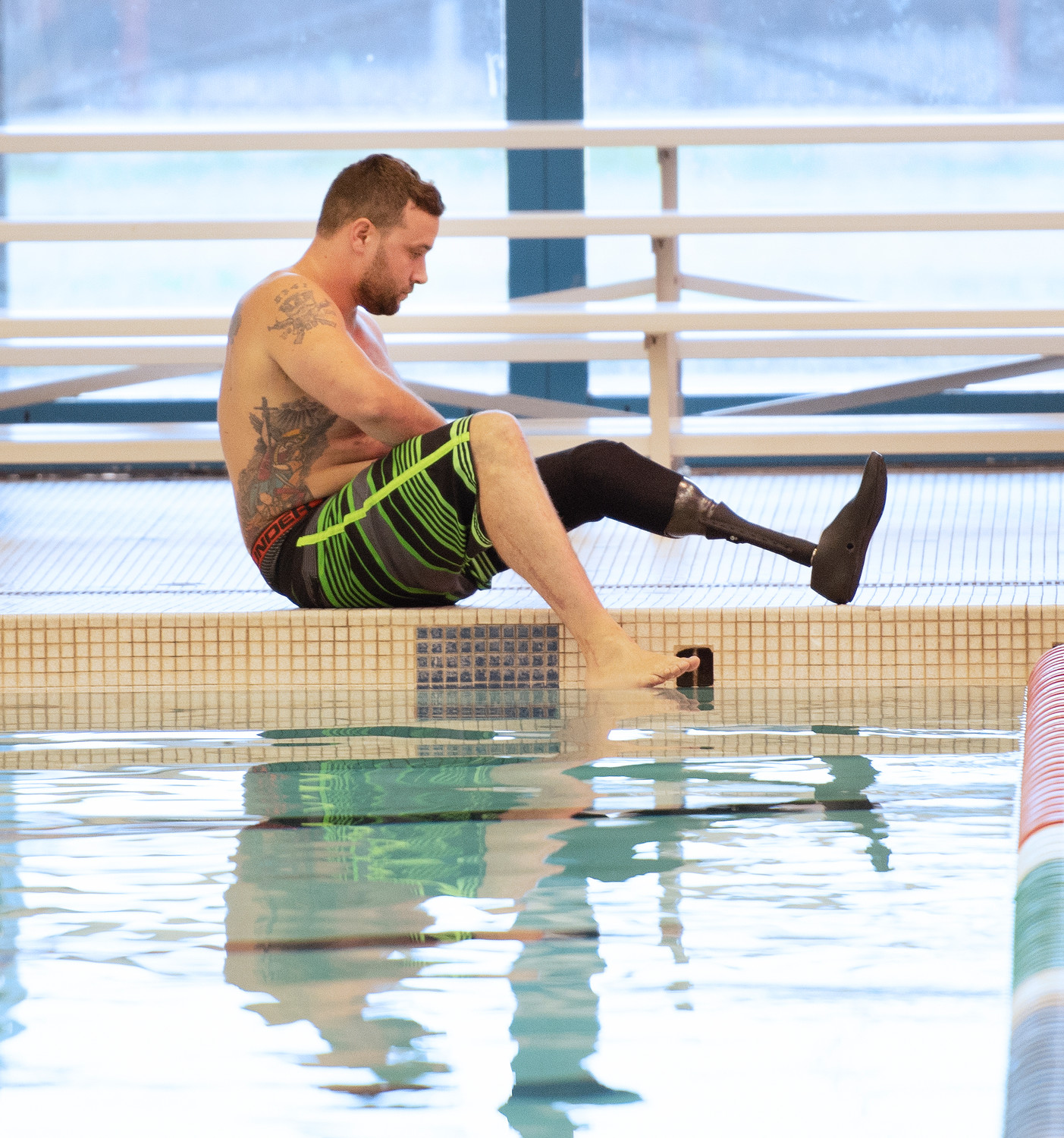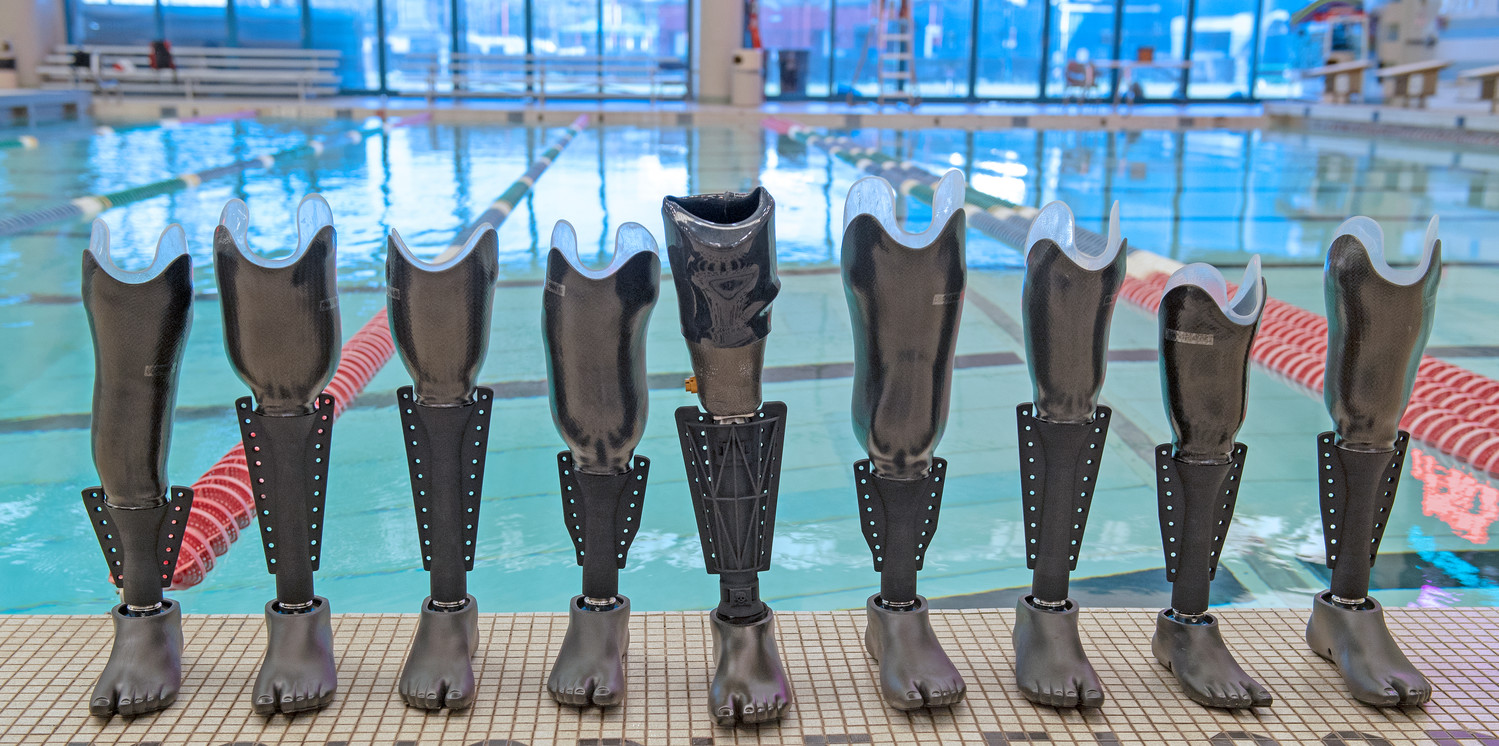Merrick veteran returns to the water
Water has played a big part in Kevin Vaughan’s life — the Merrick resident spent much of his youth at local pools and beaches. That changed, though, when he lost his left leg below the knee while serving his country.
Vaughan, 28, has used a prosthetic leg since 2011, when he was caught in the middle of a bomb attack while on active Marine Corps duty in Afghanistan. Although he adjusted to the prosthetic, he was unlikely to return to the water with the same mobility as before.
“I grew up swimming,” Vaughan said. “I always went to the beach when I had the chance. I was always around that in life.”
This summer, however, Vaughan picked up his life in the water where he left off. Northwell Health, in collaboration with Hicksville’s Eschen Prosthetic and Orthotic Laboratories, developed an aquatic 3D printed prosthetic leg — nicknamed “the Fin.”
The nylon and carbon fiber structure has lightweight “fins” on the sides that help in the water, Vaughan said, but the traditional prosthetic design also allows the user to transition onto land with ease.
Northwell Health invited the combat veteran to the Nassau County Aquatic Center in East Meadow on Aug. 1 to try the leg, and then take it home with him. Northwell officials said they hope to perfect the device after testing it with 10 amputees, and to later make it available to the estimated 1.9 million Americans who have lost a limb.
“We made something that didn’t exist yet, and solved a specific problem in a very spectacular way,” said Todd Goldstein, a Northwell Health researcher involved in the design and development of the Fin. “This study is the first step in making this innovative prosthetic available to the millions of amputees looking to return to the water.”
Initially, Vaughan, like most amputees, had to learn to swim without a prosthetic leg. The prosthetics — usually not waterproof — would add extra weight and drag swimmers down. He could swim by using his arms for most of his movement in the water, but the Fin makes swimming easier, he said.
“It makes you off-balance,” Vaughan said, of swimming with one leg. “There’s no power pushing you and getting you movement. It’s hard to describe, but the lack of weight makes you constantly feel like you’re turning counterclockwise in the water.”
Now, he said, swimming with the Fin is like “going from swimming barefoot to swimming with flippers.”
“I’m more confident and more comfortable,” he said. “I enjoy swimming more now and can take trips to Long Beach to swim.”
In his backyard pool, he has been able to swim almost every day since it was given to him.
“Now I can use this prosthetic to return to something I love to do — going to the beach and swimming,” he said.
Out of the water, Vaughan is pursuing a career that is inspired by the incident that forever changed his life. In between swimming and going to the gym, he is studying health sciences at New York Institute of Technology, and hopes to become a physician assistant or work in the medical field. Within four or five years, he hopes to be helping people like himself, he said.

 49.0°,
Fair
49.0°,
Fair 







